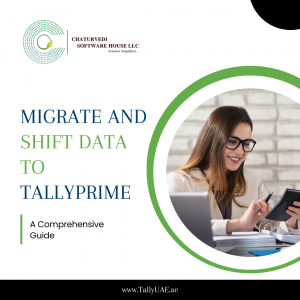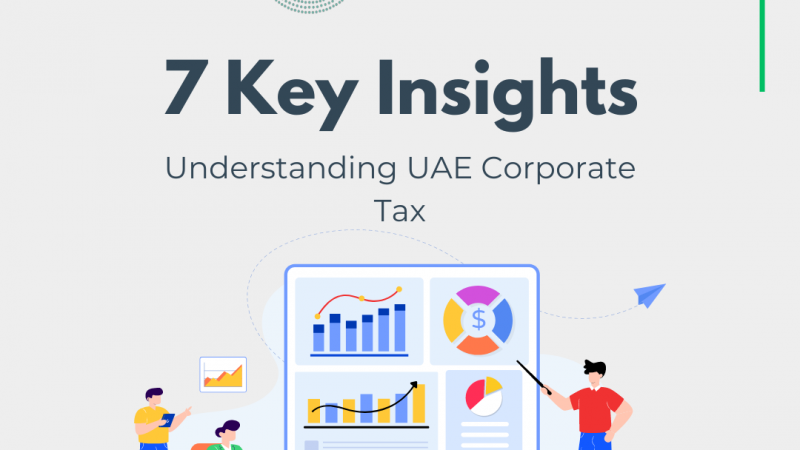How to Leverage Tally for Effective Inventory Management?
In today’s competitive business environment, effective inventory management is crucial for maintaining profitability and ensuring smooth operations. For businesses in Dubai and beyond, utilizing advanced tools like Tally can significantly enhance inventory control and management processes. As a leading accounting software in Dubai, Tally offers a comprehensive suite of features designed to streamline inventory management, reduce costs, and improve operational efficiency.
Understanding Tally’s Inventory Management Features
Tally is renowned for its robust accounting capabilities, but its inventory management features are equally powerful. By leveraging these features, businesses can gain better control over their stock, reduce wastage, and ensure timely replenishment. Here’s a closer look at how Tally can help:
Real-Time Inventory Tracking
One of the most significant advantages of using Tally for inventory management is real-time tracking. Tally allows businesses to monitor their stock levels in real-time, providing up-to-date information on inventory quantities, locations, and movements. This real-time visibility helps in making informed decisions regarding stock purchases, sales, and transfers.
Batch and Expiry Date Tracking
For businesses dealing with perishable goods or items with a limited shelf life, batch and expiry date tracking are essential. Tally enables users to manage inventory batches and track expiry dates, ensuring that products are sold or used before they become obsolete. This feature helps in minimizing losses due to expired products and maintaining the quality of goods.
Multiple Stock Valuation Methods
Tally offers various stock valuation methods, including FIFO (First In, First Out), LIFO (Last In, First Out), and Weighted Average. These methods allow businesses to choose the most appropriate valuation technique based on their specific needs and accounting standards. Accurate stock valuation is crucial for financial reporting and tax compliance.
Reorder Levels and Alerts
Maintaining optimal stock levels is vital for avoiding stockouts and overstock situations. Tally allows businesses to set reorder levels for each inventory item. When stock levels drop below a set threshold, the system triggers alerts to prompt timely replenishment. This feature helps businesses maintain adequate inventory to meet customer demand while avoiding excessive capital investment in stock.
Stock Movement Analysis
Understanding stock movement patterns is essential for efficient inventory management. Tally provides detailed reports on stock movements, including inward and outward transactions, transfers, and adjustments. These reports help businesses analyze trends, identify slow-moving or fast-moving items, and make data-driven decisions to optimize inventory levels.
Godown Management
For businesses with multiple storage locations, managing inventory across different godowns can be challenging. Tally’s godown management feature allows users to track inventory separately for each location, facilitating accurate stock management and reporting. This feature is particularly useful for businesses with warehouses, retail outlets, or distribution centers in different locations.
Comprehensive Reporting
Tally offers a wide range of inventory reports that provide valuable insights into stock status, movements, and valuation. These reports include stock summary, stock aging analysis, batch-wise reports, and more. By leveraging these reports, businesses can gain a deeper understanding of their inventory performance and make strategic decisions to improve efficiency and profitability.
Benefits of Using Tally for Inventory Management
Leveraging Tally for inventory management offers several benefits that can significantly impact a business’s bottom line. Here are some of the key advantages:
Improved Accuracy
Manual inventory management is prone to errors, leading to discrepancies and inaccuracies. Tally automates inventory tracking and management, reducing the likelihood of errors and ensuring accurate stock records. This accuracy is crucial for maintaining customer satisfaction and avoiding financial losses.
Enhanced Efficiency
By automating various inventory management tasks, Tally streamlines operations and saves time. Features like real-time tracking, automated alerts, and comprehensive reporting eliminate the need for manual data entry and analysis, allowing employees to focus on more strategic activities.
Cost Savings
Effective inventory management helps minimize carrying costs, reduce wastage, and avoid stockouts. Tally’s features enable businesses to maintain optimal stock levels, preventing overstocking and understocking situations. These cost savings contribute to improved profitability and cash flow.
Better Decision-Making
Access to accurate and up-to-date inventory data is essential for making informed decisions. Tally’s comprehensive reporting and analysis tools provide valuable insights into stock performance, helping businesses identify trends, forecast demand, and plan inventory purchases more effectively.
Regulatory Compliance
For businesses operating in regulated industries, compliance with inventory management standards is crucial. Tally’s features, such as batch and expiry date tracking, help businesses comply with industry regulations and maintain product quality. Additionally, accurate stock valuation and reporting ensure compliance with accounting and tax requirements.
Scalability
As businesses grow, their inventory management needs become more complex. Tally is designed to scale with the business, accommodating increasing volumes of transactions, stock items, and storage locations. This scalability ensures that Tally remains a valuable tool for inventory management, regardless of business size or industry.
Conclusion
Tally is a powerful tool for effective inventory management. Its comprehensive features, real-time tracking, and robust reporting capabilities make it an ideal choice for businesses looking to streamline their inventory processes and improve operational efficiency. By leveraging Tally, businesses can enhance accuracy, reduce costs, and make informed decisions that drive growth and profitability. Whether you’re a small business in Dubai or a large enterprise, Tally provides the tools you need to manage your inventory effectively and achieve long-term success.




















